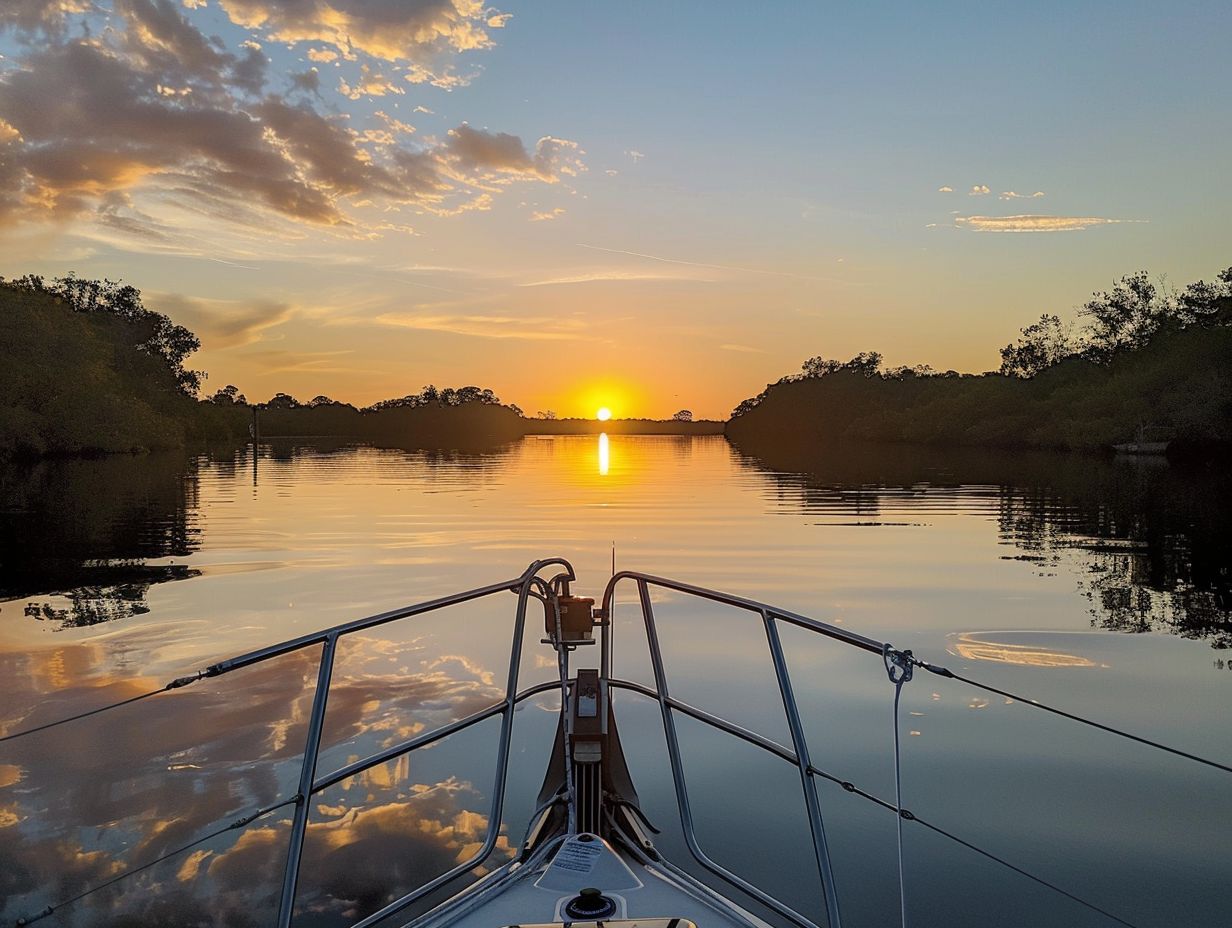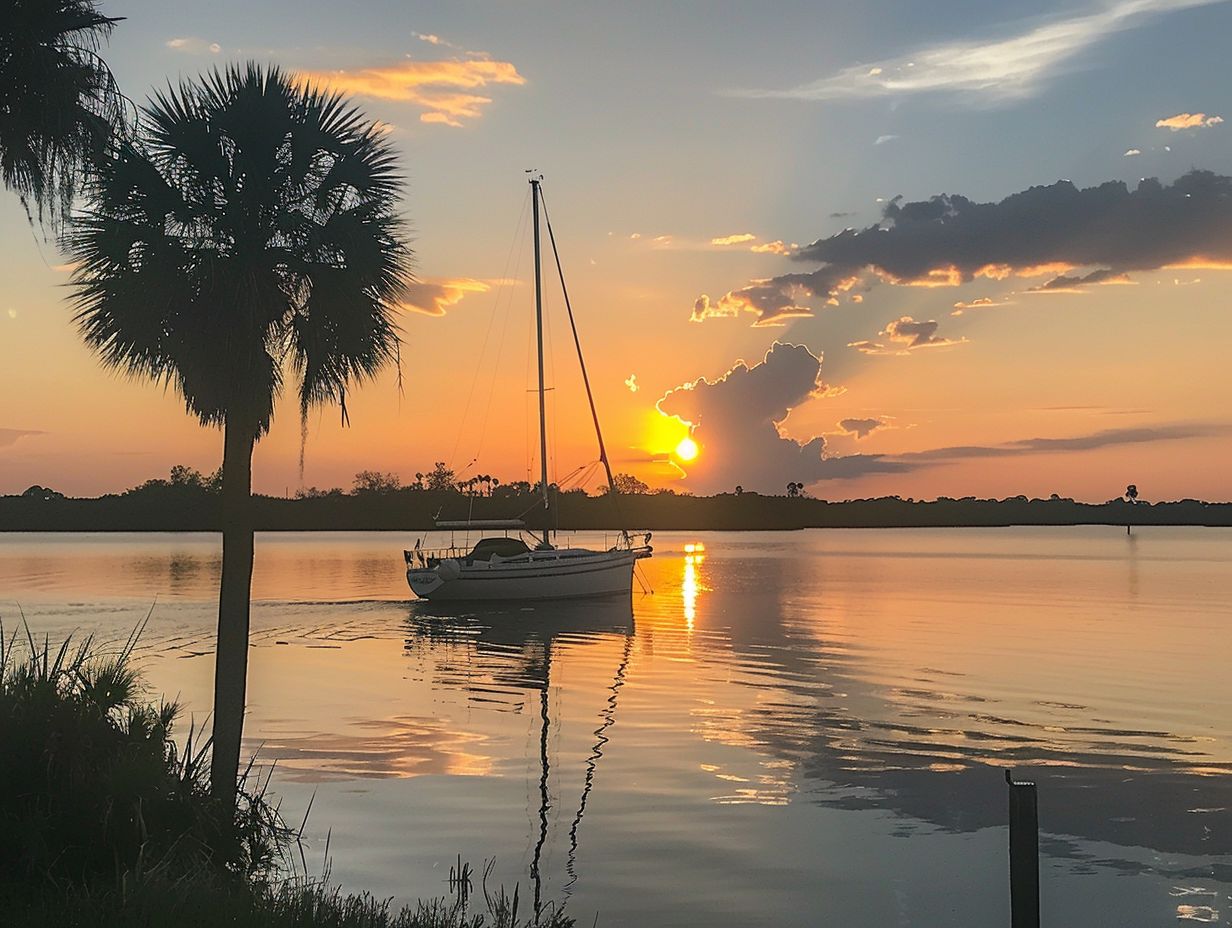Heading out for a day on the water in Florida can be a relaxing and enjoyable experience.
It’s important to be aware of the laws and regulations surrounding boating accidents in the state.
From the most common types of accidents to the causes and contributing factors, this article explores everything you need to know about boating accidents in Florida.
We’ll also discuss the requirements for boating safety education, the penalties for violating boating laws, and what to do if you’re involved in an accident.
We’ll provide tips on how to prevent accidents and stay informed about boating regulations in Florida.
What Are the Laws Governing Boating Accidents in Florida?
The laws governing boating accidents in Florida are primarily outlined in Florida Statutes Chapter 327 and Chapter 328, with enforcement and educational efforts managed by the Florida Fish and Wildlife Conservation Commission’s (FWC) Boating Safety Section.
What Are the Requirements for Boating Safety Education in Florida?
Boating safety education in Florida mandates that operators must complete a course approved by the National Association of State Boating Law Administrators (NASBLA) to ensure comprehension of safe boating practices and regulations.
These courses encompass a broad array of topics, including navigation rules, emergency procedures, equipment requirements, and the impact of alcohol and drugs on boating safety. Various course formats are available, such as online courses, in-person classes, and on-the-water training sessions. Completion of the course often requires participants to pass a final exam to exhibit their knowledge and understanding.
Boating safety education plays a crucial role in increasing awareness of proper boating techniques and ensuring the safety of all individuals on the water.
What Are the Penalties for Violating Boating Laws in Florida?
Penalties for violating boating laws in Florida can include fines, license suspension, and other legal consequences, with enforcement carried out by state and local law enforcement agencies.
Depending on the specific violation, penalties may range from monetary fines for minor infractions to more severe consequences such as license revocation for serious offenses. Law enforcement plays a crucial role in monitoring waterways, conducting safety checks, and ensuring boaters comply with regulations.
The long-term consequences of infractions can extend beyond immediate penalties, impacting insurance rates, future boating privileges, and even potential criminal records, underscoring the importance of adhering to boating laws to maintain safety and order on Florida’s waters.
What Should You Do If You Are Involved in a Boating Accident in Florida?
If there is a boating accident in Florida, it is important to adhere to certain steps to prioritize safety and legal compliance. These steps may include:
- Contacting law enforcement,
- Reporting the accident, and
- Considering available legal avenues for addressing compensation and liability.
What Are the Steps to Take Immediately After a Boating Accident?
Following a boating accident, it is important to prioritize the safety of everyone involved, contact law enforcement, offer medical assistance if necessary, and collect information from witnesses.
Ensuring the safety of all individuals is of utmost importance in the hectic aftermath of a boating accident. Getting in touch with law enforcement is essential for recording the incident and facilitating any legal procedures that may be required.
Providing timely medical aid can be crucial in emergency situations. Gathering details from witnesses assists in reconstructing the chain of events and establishing responsibility. These immediate actions not only help in effectively managing the situation but also play a significant role in ensuring a comprehensive response to the aftermath of the accident.
What Are the Requirements for Reporting a Boating Accident in Florida?
According to Florida law, boating accidents are mandated to be reported to law enforcement within a specific timeframe, accompanied by comprehensive documentation of the incident and its consequences.
To meet these reporting obligations, individuals implicated in a boating accident are generally mandated to file a Boating Accident Report with the Florida Fish and Wildlife Conservation Commission. This report should encompass essential specifics such as the accident’s date, time, and location, identification of involved parties, descriptions of injuries or damages, and any contributing factors.
It is essential to include supporting documents like witness statements, photographs, and insurance information. By promptly submitting a thorough report, boaters can ensure that the incident is accurately recorded and scrutinized by the relevant authorities.
What Are the Legal Options for Victims of Boating Accidents in Florida?
Individuals involved in boating accidents in Florida have multiple legal options for seeking compensation and determining liability, often with the support of specialized law firms like the Fort Lauderdale Boating Accident Law Firm.
Navigating the aftermath of a boating accident can be complex, but having an understanding of the available legal pathways is essential. Following a boating accident, victims may seek compensation through various avenues, including initiating insurance claims, negotiating settlements, or pursuing legal action.
Legal representation is crucial in guiding victims through these procedures, ensuring their rights are upheld, and assisting them in obtaining fair compensation for their losses and damages. Engaging the services of experienced boating accident attorneys can significantly enhance the likelihood of a favorable outcome in these intricate cases.
How Can You Prevent Boating Accidents in Florida?
Preventing boating accidents in Florida necessitates a combination of safety precautions, proper equipment, boating education, and adherence to state laws and regulations to ensure a safe and enjoyable experience on the water.
What Are the Safety Precautions to Take While Boating in Florida?
Important safety precautions to take while boating in Florida include wearing personal flotation devices (PFDs), following navigation rules, meeting equipment requirements, and using proper anchoring techniques to prevent collisions and interference.
Wearing PFDs is essential as they can potentially save lives in emergency situations, especially given the unpredictability of events on the water. Adhering to navigation rules contributes to maintaining order on waterways, reducing accident risks, and enhancing the overall boating experience.
Meeting equipment requirements ensures readiness for various scenarios that may arise while boating. Employing proper anchoring techniques not only helps prevent collisions but also aids in securely positioning the boat for stability and safety.
How Can You Stay Informed about Boating Laws and Regulations in Florida?
Being informed about boating laws and regulations in Florida involves enrolling in regular boating education courses, keeping up with resources from the FWC’s Boating Safety Section, and staying informed about changes in state laws and regulations.
These resources offer valuable information to assist boaters in safely and legally navigating Florida’s waterways. Online courses cover various topics like navigation rules and emergency procedures, ensuring that boaters are equipped to handle different situations on the water.
Updates from the FWC’s Boating Safety Section provide the most recent developments on regulations, safety advice, and upcoming events. Additional educational resources, such as safety videos and informational pamphlets, further contribute to boaters’ comprehension of boating laws and recommended practices.
Frequently Asked Questions
What are Florida’s boating accident laws?
Florida’s boating accident laws refer to the regulations and statutes in place to govern the safe operation of boats and other water vessels in the state. These laws aim to prevent accidents and protect the safety of boaters and other individuals on or near the water.
Do Florida’s boating accident laws apply to all water vessels?
Yes, Florida’s boating accident laws apply to all water vessels, including boats, jet skis, and other personal watercraft. These laws also cover non-motorized vessels such as kayaks, canoes, and paddleboards.
What are the consequences of violating Florida’s boating accident laws?
Violating Florida’s boating accident laws can result in fines, jail time, or the suspension of boating privileges. Additionally, individuals may face civil liability for injuries or damages caused by their reckless or negligent behavior on the water.
What should I do if I am involved in a boating accident in Florida?
If you are involved in a boating accident in Florida, you should immediately stop your vessel and render aid to anyone who may be injured. You must also exchange information with other involved parties and report the accident to the proper authorities. It is also advisable to seek legal guidance from an experienced boating accident lawyer.
Are there any age restrictions for operating a boat in Florida?
Yes, Florida’s boating accident laws have specific age requirements for operating a boat. Any individual under the age of 14 must have a valid boating education ID card to operate a boat with a motor of 10 horsepower or more. Individuals under the age of 18 must also have a boater education ID card to operate a personal watercraft.
Are there any other laws or regulations I should be aware of while boating in Florida?
Yes, in addition to boating accident laws, there are other regulations that boaters in Florida must follow. These include navigational rules, speed limits, registration requirements, and equipment regulations. It is essential to familiarize yourself with all boating laws and regulations before operating a water vessel in Florida.


























Rate this article:
No Comments yet!